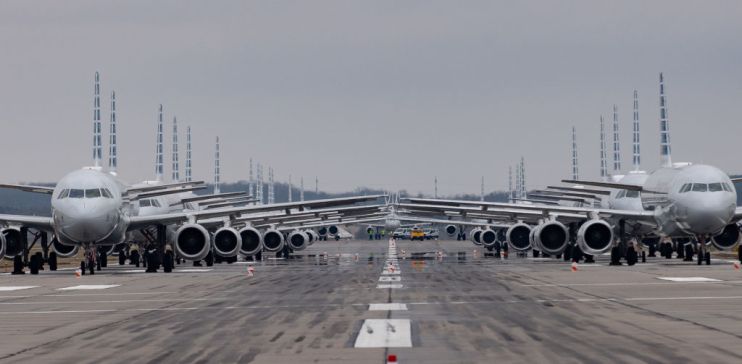Coronavirus: American Airlines to seek $12bn in state aid

The US’ biggest carrier American Airlines will ask for $12bn (£9.7bn) in government aid in order to prevent it from making any pay cuts or laying off staff over the next six months.
In a memo to employees last night, chief executive Doug Parker said that with the financial help American would be able to operate “through even the worst of potential future scenarios”.
The $12bn in aid, which would be split into $6bn in loans and $6bn in grants, is more than a fifth of the industry-wide package of support ratified by the US government last week to protect airlines from the coronavirus pandemic.
American is the largest employer of the US’ airlines, with nearly 134,000 employees, whose wages make up more than a third of its revenues.
Under the conditions of the government’s aid package, airlines will not be able to lay off any staff until 30 September.
The US treasury is required to make initial grant payments, which total $25bn, by next week, and has asked airlines to apply by 3 April.
Sign up to City A.M.’s Midday Update newsletter, delivered to your inbox every lunchtime
According to its guidelines, airlines “must identify financial instruments” that would “provide appropriate compensation” for the cash grants, adding that these could include warrants, options, preferred stock, debt securities or notes.
Airlines will have to apply for $25bn in loans separately. Those seeking loans must describe losses they have “incurred or will incur as a result of coronavirus” and detail the cause of the loss such as reduced demand, unavailability of credit or unbudgeted medical expenses.
Yesterday the US’ Regional Airline Association wrote to the treasury to ask that regional carriers take priority for the awarding of grants.
Many of these airlines, which run short-haul flights for giants such as American, Delta, and United Airlines, are not publicly listed, and therefore cannot access capital markets.
Priority for the aid would “ensure the smallest carriers, with the most vulnerable employees and which serve the most isolated communities, receive adequate assistance”, the letter said.